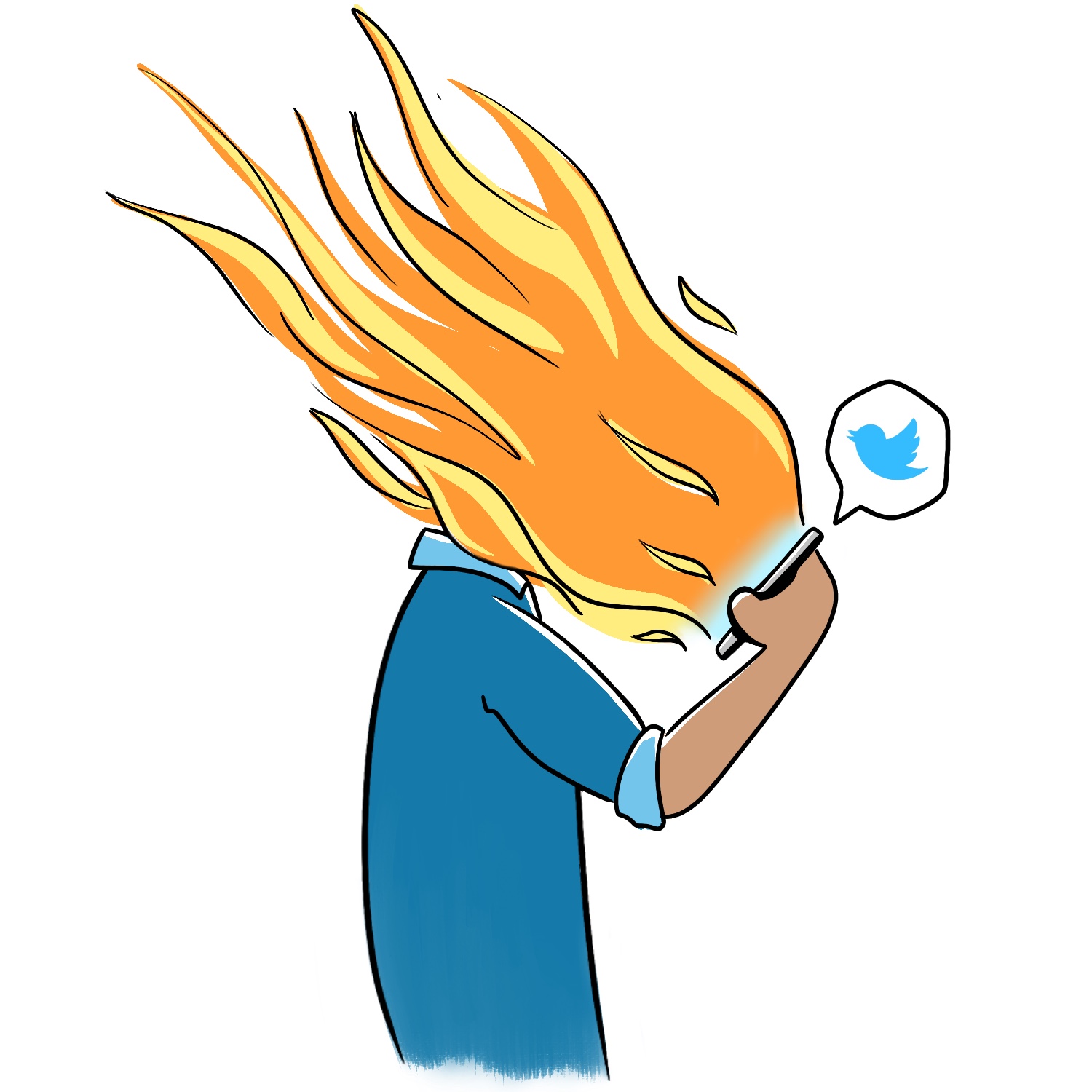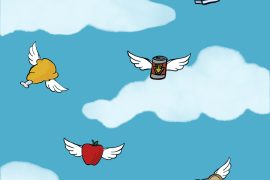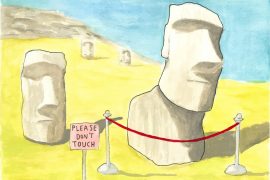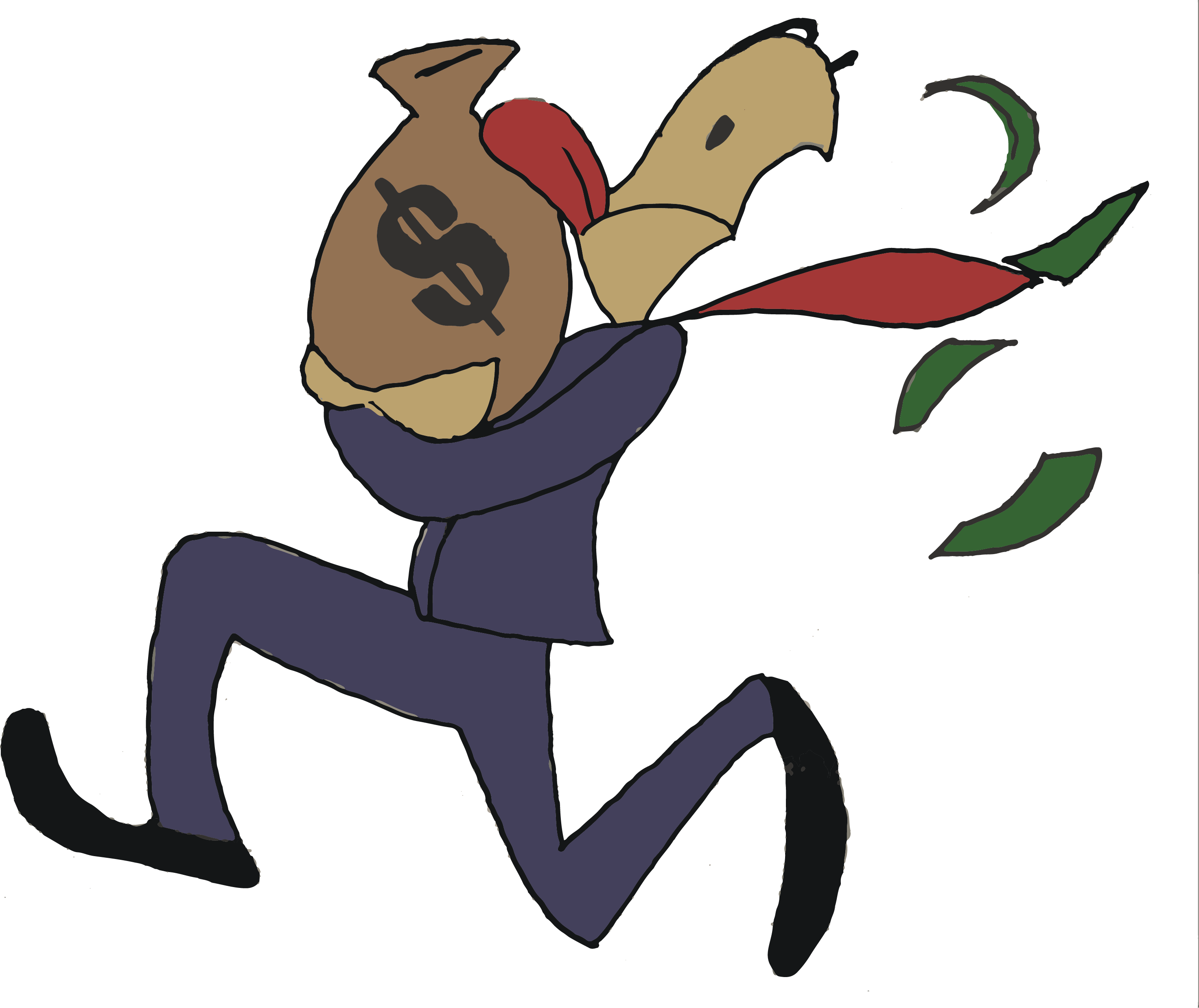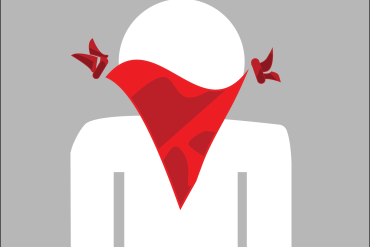I’m beginning to settle into a routine again. There’s still not much to look forward to, just another day at my childhood home in self-isolation. I do the minimal amount of online work my merciful professors have given me. I let out the dogs, make myself a cup of tea, and sit at the kitchen table. Once there, my mind has a tendency to drift to the endless time-sucking void we’re stuck in, or to the fact that I’m graduating in June to a broken economy with zero job postings. I feel myself falling deeper, but I don’t necessarily want to, so I grab my phone and go on Twitter for a distraction. My eyes hit the first Tweet at the top of my timeline: “There are still NO TESTS. There is still not enough PPE. There is still not enough VENTILATORS. There is still not enough BEDS. There is still not enough HCW. There is still NO CURE. There is still no VACCINE. There is still no NATIONAL SHUTDOWN. There ARE 10,000 dead Americans [sic].” A gnawing feeling starts in my stomach; the beginning of panic. But I keep scrolling. Data, videos from health professionals, stories of people losing family members hit me in an apocalyptic wave. I barely know what I’m looking at. I check the time. Two hours have gone by. I’ve ruined my own morning again.
Do I feel caught up on everything happening at any given moment? Yes. Should I be? Normally, I would say yes. However, as many people keep saying, we are in an unprecedented situation here. Instead of being constantly logged on for maximum information intake, monitoring your social media time is going to be the healthier option right now.
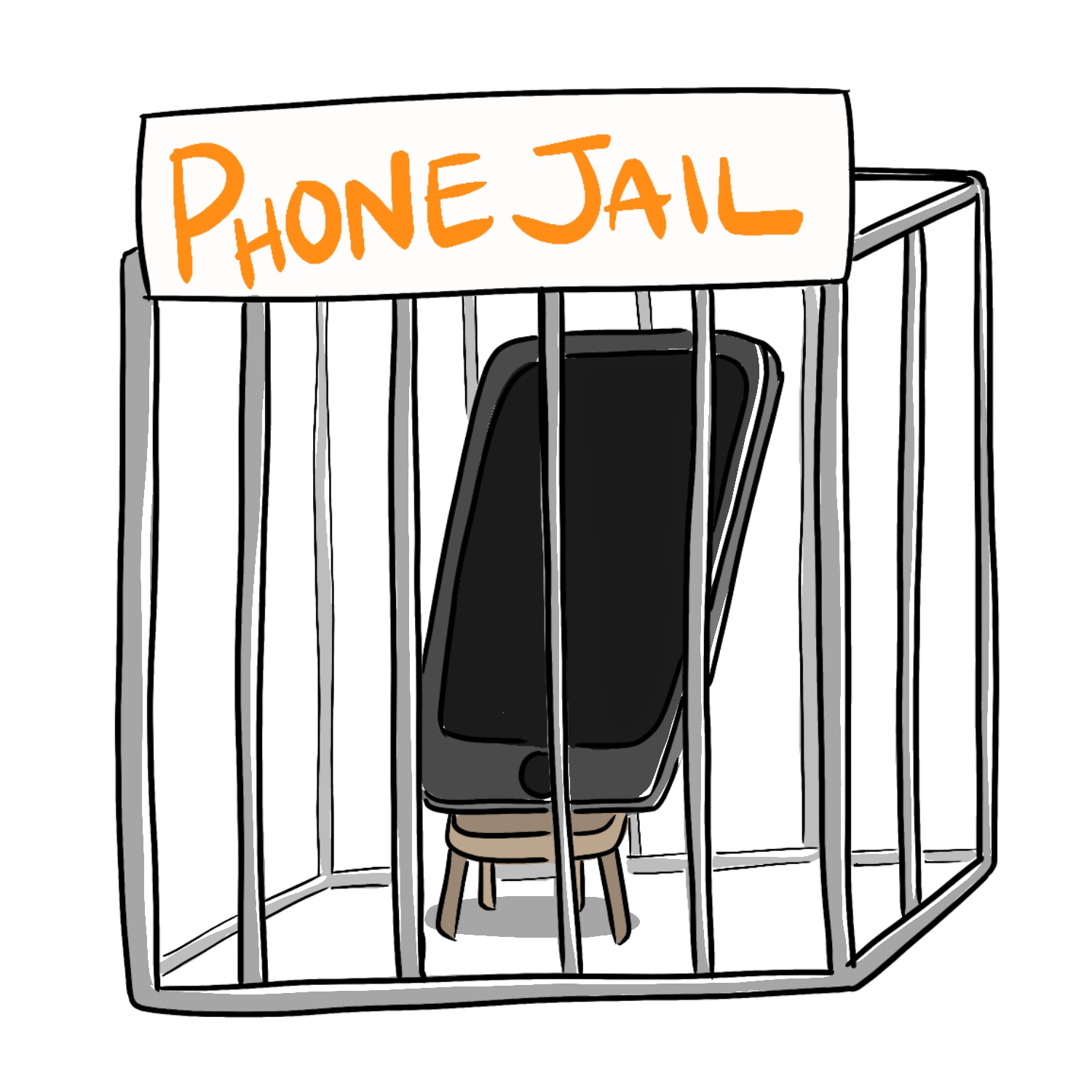
illustrations by Bailey Granquist
Let’s talk about burnout. Burnout is similar to the concept of “compassion fatigue,” in which being exposed to great amounts of suffering can cause second hand trauma, leading to feelings of apathy or depression. It’s most common in caregivers. Burnout, on the other hand, takes place over a longer period of time and most commonly targets those with an “increased workload” or who are experiencing “institutional stress,” according to the American Institution of Stress. One of the most common symptoms of burnout is apathy, especially regarding misfortune and your daily tasks.
We are all currently experiencing institutional stress and, I would argue, many of us are starting to feel burnout. Social media exposes us to extreme suffering every time we log on. The longer you scroll, the more the news blends into one massive, impenetrable blob of viral tragedy. This information should be taken in smaller doses to be truly understood, but that isn’t how we’ve come to consume our news. Instead, it infiltrates us in a stream of endless content. Are you starting to feel the apathy, the anxiety, the hopelessness? Then it’s time to stop.
That doesn’t give us license to never, ever read the news until this is all over. Being informed is just as important as prioritizing your mental health. So how do we strike a happy (or, at least, manageable) medium? Over the past few days, I’ve been trying out a new routine. Feel free to adopt whatever might work for you.
8 a.m.: I wake up. I check my phone for texts only. I then pick one of my pop music playlists to motivate myself to get out of bed.
8:15 a.m.: I shower. This is an important step, so don’t skip it! It’ll make your day ten times better
9 a.m.: I make toast. I use avocado, lime juice, and paprika, but you can really use anything. The bread is just a vehicle for nutrients. I’m still not checking my phone, by the way!
9:30 a.m.–Whenever I’m done: I do schoolwork. This varies timewise. Sometimes it takes an hour, sometimes five hours. What really matters is that I’m not checking my phone! Instead, my brain is focused on things that feel normal and productive.
12:30 p.m.: I make lunch. All of my meals are pretty bare minimum, but should be healthy in some way. Normally, I make ramen with a bit of egg. If you have the cash, you can also order lunch from a small business! How’s that for normal? I let myself check my phone while I eat. However, I do not check Twitter or Facebook. Instead, I opt for Instagram (stories are still fun), Reddit (I’ve deleted r/politics and r/news from my feed, but still have things like r/popheads and r/casualconversation), or Tumblr (yes, I still use it and yes, it’s still good). They don’t feel normal, but they don’t feel apocalyptic either.
Once my schoolwork is done–5:30 p.m.: I watch Netflix, read, or work on a project. Put the phone down! Instead, I take part in forms of productivity that feel small but worthwhile. Finally getting around to things I’ve put off is always a good thing, even if it’s just a novel or a few new pages in my thesis.
5:30 p.m.: I eat again! You get the idea, I’ve been eating all day. Eating is important; don’t skip meals, even if you’re anxious and don’t feel hungry. During this time, I make myself read a few articles: one about Portland, one about NYC, one international. I don’t linger, I just get the necessary info and exit. During this half hour, I let myself check Twitter and Facebook. This takes willpower, so it may take a few tries to not fall down another spiral of bad news.
6 p.m.–11 p.m.: I Zoom my friends, I play Animal Crossing with them, or I call my boyfriend. Just about everyone is available at this time to socialize, so I make sure to take advantage of that. My bonds with the people in my life feel incredibly close right now. We have more time than ever to “hang out” and we take every chance we can to do so. “It’s also,” say it with me, “a great way to stay off my phone!”
11 p.m.: I go to bed. I answer any lingering messages, but I don’t check social media. I put on a chiller playlist to help myself fall asleep. The less time I spend on Twitter, the easier it’s been for me to fall asleep. Last night, it only took me two songs!
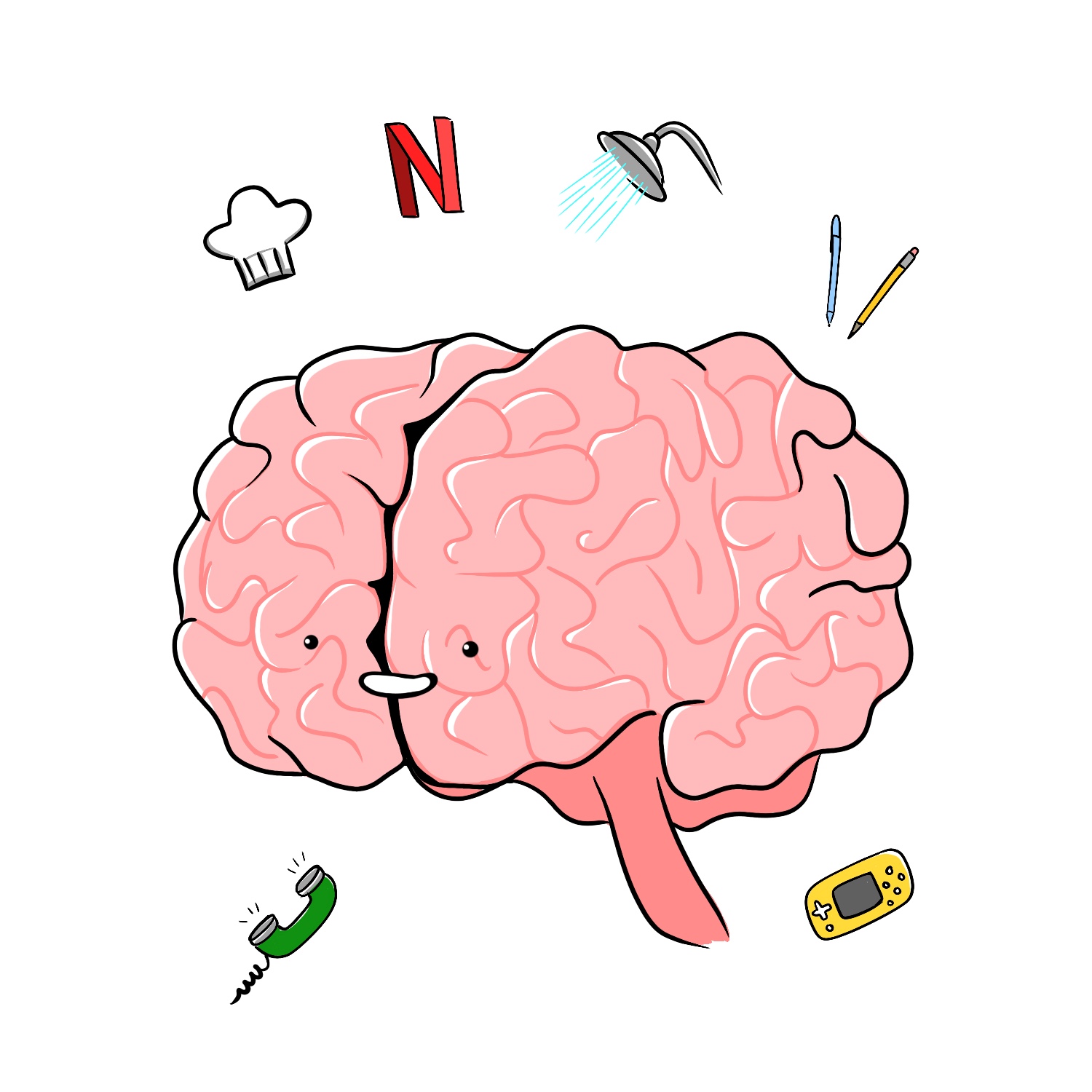 Maybe this sort of schedule seems a bit fussy or down-to-the-detail, but it’s been instrumental in keeping myself away from the spiral. Twitter is bad. It’s extremely important, but it is so, so bad. We all knew this before the pandemic, but it has exacerbated existing problems. Do yourself a favor and value your time! It can be much better spent with friends on Zoom or engaging in your hobbies. All of this is much easier said than done. If you need to, delete your offending apps. Anything that’s been causing you stress or anxiety can go. We have enough stress coming in that is out of our control, but you can cut out the variables that are in your control.
Maybe this sort of schedule seems a bit fussy or down-to-the-detail, but it’s been instrumental in keeping myself away from the spiral. Twitter is bad. It’s extremely important, but it is so, so bad. We all knew this before the pandemic, but it has exacerbated existing problems. Do yourself a favor and value your time! It can be much better spent with friends on Zoom or engaging in your hobbies. All of this is much easier said than done. If you need to, delete your offending apps. Anything that’s been causing you stress or anxiety can go. We have enough stress coming in that is out of our control, but you can cut out the variables that are in your control.
I find that the less time I spend on social media, the more my real emotions can take over. I let myself feel grief over the small amount of news I consume. I laugh more when I’m talking with friends because I’m not bogged down by info. I promise, you know all that you need to know to stay safe and healthy. These are the things that matter. Twitter will still be there when all of this is over. In the meantime, let’s prioritize health. This is a pandemic, after all.

